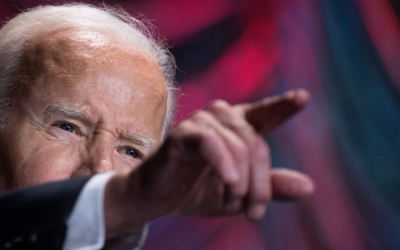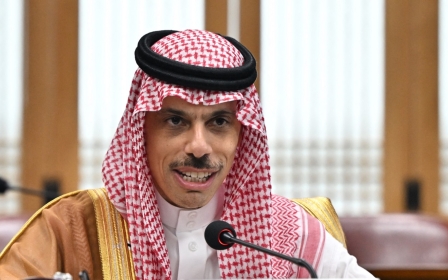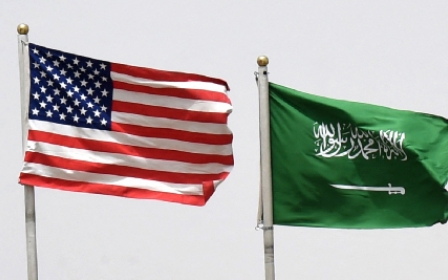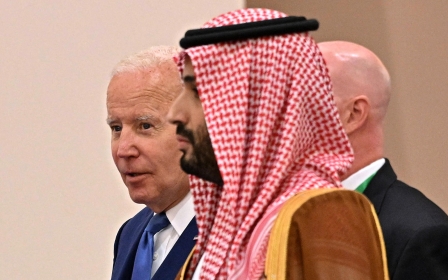Dismantling US-Saudi ties could rupture American influence in Gulf, say experts
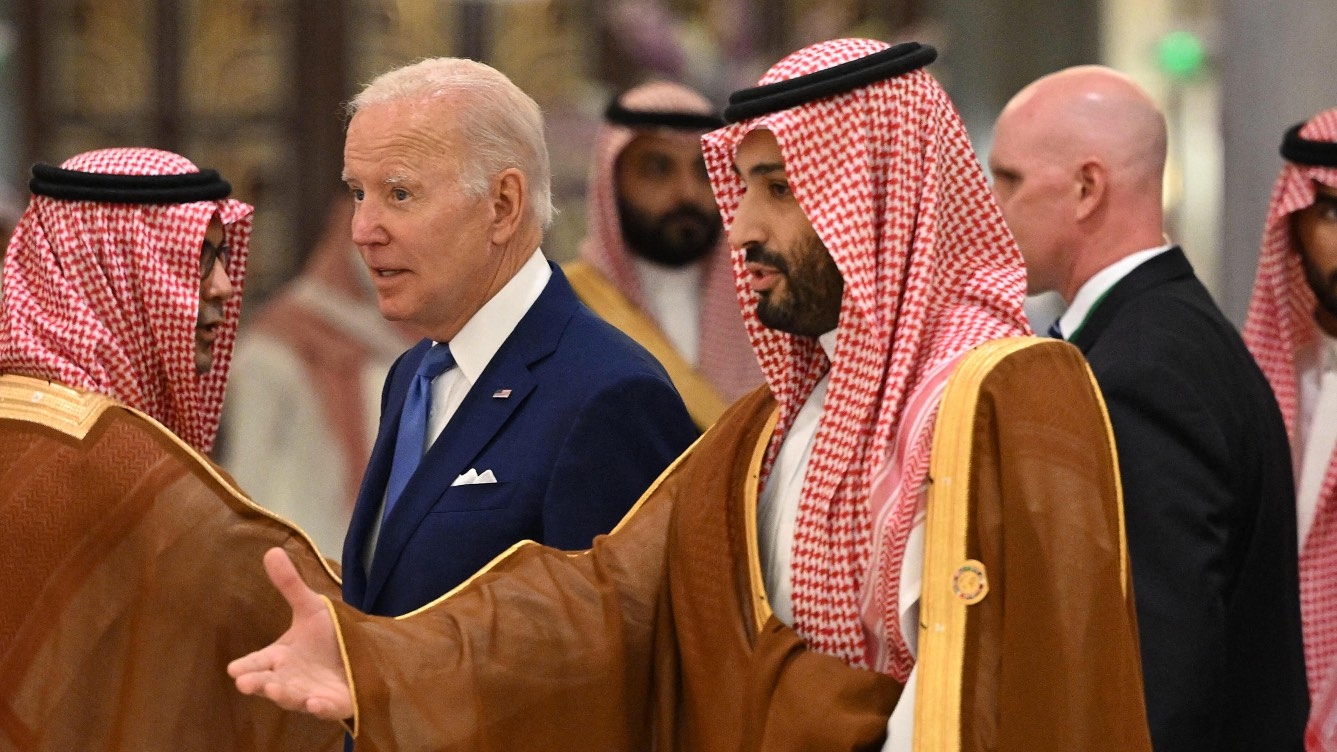
Following a wave of US outrage against Saudi Arabia for an Opec+ decision to cut oil production, experts and former officials have said that the US-Saudi relationship is too complex to be fully dismantled, and that President Joe Biden should assess the impact on the entire Gulf region before amending policy.
Opec+, led by Saudi Arabia and Russia, said its decision earlier this month to cut oil production by two million barrels a day was done to help stabilise the global energy market amid signs of a recession.
But the news was met with massive condemnation and criticism in the US, especially from Democratic lawmakers who called for an overhaul of Washington's ties with the kingdom and a halt to arms sales.
The Biden administration accused Saudi Arabia of aiding Russia by increasing its oil profits as it continues to wage war in Ukraine. This remains to be seen, however, as the price of Brent Crude, the international benchmark for oil, remains lower on Monday than it was at the time of the announcement.
Saudi Arabia then hit out at the Biden administration, saying it "totally rejects" the criticism levied at the kingdom.
New MEE newsletter: Jerusalem Dispatch
Sign up to get the latest insights and analysis on Israel-Palestine, alongside Turkey Unpacked and other MEE newsletters
And neither side appears to be backing down. The US reportedly cancelled a meeting with Saudi Arabia and the Gulf Cooperation Council (GCC), while American government officials were not invited to a Saudi investment conference planned for later this month, according to AFP.
Bruce Riedel, senior fellow at the Brookings Institution and director of The Intelligence Project, said US President Joe Biden needs to keep in mind that "they need us much more than we need them" when reevaluating its relationship with Saudi Arabia.
"The Saudis must have known that coming out with this decision at this time, a month before the midterms, was going to be very, very difficult for Joe Biden," Riedel said during a panel hosted by the Middle East Institute on Friday.
"At the end of the day, this relationship is not one of equals. And Joe Biden should keep that in mind as he goes forward in the days ahead."
However, Riedel's argument was countered by other analysts, including Joanna Held Cummings, a national security fellow at MEI and a former State Department official.
"If we have this frustration and we want to make a change, what does it mean in terms of our relationship with Saudi Arabia, obviously, but also how does it play with friends with enemies in the region and elsewhere?" Cummings said.
US arms sales to Saudi Arabia
One of the main calls from US Congress regarding the relationship with Saudi Arabia is a demand that the US temporarily halt weapons sales to Riyadh.
Many Democrats, who have for years been critical of US arms sales to Saudi Arabia because of the kingdom's rights abuses and the ongoing war in Yemen, signed legislation calling for a ban on arms sales to the kingdom.
This call has been echoed even by Senator Bob Menendez, the chair of the powerful Senate Foreign Relations Committee, who holds the power to allow or block any arms sales-related bill in Congress.
The US and Saudi have a close security partnership, and the kingdom is the US's largest customer of foreign military sales (FMS), with more than $100bn in active contracts. Saudi Arabia gets roughly 70 percent of its arms from the US, according to a 2020 study by the Stockholm International Peace Research Institute.
'I absolutely agree Russia's capability to step in is diminished, but China's is not'
- Kevin Donegan, Middle East Institute
The amount of US equipment that makes up the Saudi military has been pointed out in Congress as a means of serious leverage in the relationship that can be utilised to sway the kingdom against what the Biden administration sees as an alignment with Russia.
However, Kevin Donegan, a former United States Navy vice admiral and current national security fellow at the Middle East Institute, said that this could also backfire and lead to a further drift between the US and Saudi Arabia, as well as the rest of the Gulf region.
"It generally creates frustration and often supports the narrative that the US isn't a reliable partner. And in this case, in the region, maybe the feeling of abandonment gets cemented even more," Donegan said.
When Russia's invasion of Ukraine began in February, the US had called on all of its allies and partners to isolate Moscow. The call was met with some reluctance from some Gulf countries, including Saudi Arabia.
While Saudi Arabia did vote at the UN to condemn Russia for the invasion, many of the US partners in the region signalled unease over a perceived declining American security commitment.
Donegan said that while Russia's losses on the battlefield in recent months have proven that it cannot replace the US as a security guarantor for the Gulf, other countries would still benefit from decreased American military support.
"I absolutely agree Russia's capability to step in is diminished, but China's is not," Donegan said.
Experts previously told MEE that Beijing has been expanding its arms market in the Middle East, and sees American partners Saudi Arabia, the United Arab Emirates and Qatar as targets for high-end weapons deals.
US-Saudi ties are multilateral, not bilateral
Since the US backlash over the Opec+ decision, which was almost exclusively directed at Saudi Arabia, several other member countries have come out to say that the move was done in consensus with the entire oil cartel.
Oman and Bahrain said in similar statements on Sunday that the decision was made based on "technical studies" and "market developments".
White House National Security Council spokesman John Kirby, however, said last week that Opec members told the US privately they disagreed with Riyadh's decision "but felt coerced to support Saudi's direction".
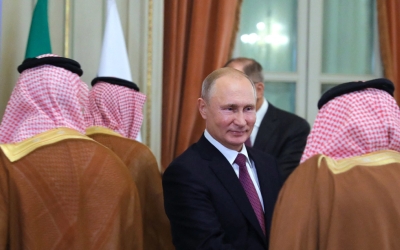
The experts pointed to the development as a sign that while the Gulf is not a monolith, there is some consensus in regard to issues like energy, and dismantling ties with Saudi Arabia could have a chilling effect on the rest of the region.
"The price of suspending security cooperation, we should look at it really carefully. Do we want to lose the influence that we have in the region?" Donegan said.
"We should be looking clearly at what creates the most stability. And we should be very careful about bifurcating the GCC, which is already very bifurcated."
Donegan said that when looking at how it can reevaluate the US-Saudi relationship, Biden should also look at what is at stake for the GCC's security ties with the US, as well as Nato, as a whole, rather than looking at it as a bilateral partnership.
"We do want systems to be interoperable. And that's a fact we can't get away from as much as I may be critical of our over-emphasis on arms sales as the determining factor in a relationship," Cummings said.
Middle East Eye delivers independent and unrivalled coverage and analysis of the Middle East, North Africa and beyond. To learn more about republishing this content and the associated fees, please fill out this form. More about MEE can be found here.


